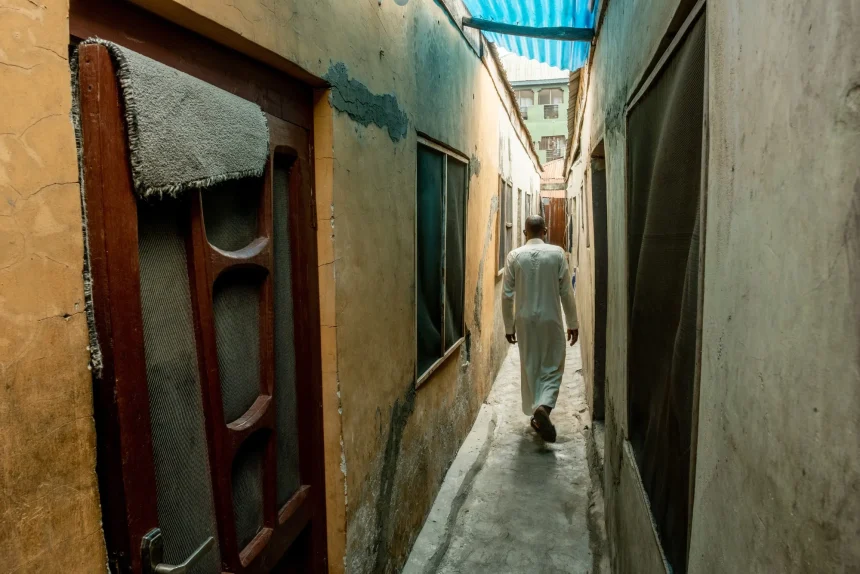In many low-income areas across Nigeria, especially in the South-West, a popular housing style remains common the Face-Me-I-Face-You apartment. These buildings often serve as affordable shelter for large families and individuals struggling to make ends meet.
What Does “Face-Me-I-Face-You” Mean?
The name comes from the layout. Rooms are built facing each other in long rows. Residents on one side share bathrooms, toilets, and kitchens with those on the opposite side. These apartments are usually made up of single rooms or a room-and-parlour format. It’s not uncommon for a single room to house several people.
The Good Side of Shared Living
Psychotherapist Olukolade Olugbemi believes there are benefits. He says the environment helps people feel connected. Children grow up learning from others and develop what’s known as “street wisdom.”
Living this way, people see different life experiences daily. This, according to Olugbemi, helps them understand choices and consequences better. It builds social learning, especially for young minds.

But the Challenges Are Real
Despite the positives, Olugbemi warns that the negatives often outweigh the good. One big issue is the stigma of poverty. Families in these apartments often struggle with basic needs.
Another major problem is lack of privacy. People living in one room have little or no personal space. Children may also be exposed to behaviors that could harm their development. These include sexual abuse and witnessing things they are too young to understand.
Olugbemi adds that noise, poor sleep, and overcrowding can affect mental health. He notes that it’s hard for children to focus on schoolwork in such a noisy, shared space.
Stories from the Residents
Mr. Bola Adewole lives in a Face-Me-I-Face-You apartment in Oke Ado, Ibadan. He sees the housing as helpful and friendly. According to him, living around others has many benefits, including safety and child care.
He shares a story about a neighbor who was critically ill but couldn’t seek help. Neighbors noticed his absence and rushed him to the hospital in time. Bola believes this wouldn’t have happened in a self-contained flat where neighbors keep to themselves.
He also says his own children are safe from bad influences. “No one here smokes or fights,” he says. “Our landlady doesn’t tolerate bad behavior. My kids are doing fine.”
A Different Experience
Not everyone agrees. Alenibare Lateef, who lives in Soka, Ibadan, shares a different view. He says the living conditions are far from ideal. “Just yesterday, two sex workers in a nearby house got into a fight. They broke bottles and yelled at each other. Children were standing there watching.”
He says noise and competition make the place stressful. For example, tenants often buy small generators just to compete with neighbors. “When the power is out, the whole building sounds like a factory,” he adds. He wishes he could move to a flat, but it’s too expensive.
The Impact on Children and Family Life
Mrs. Abimbola Mayowa also lives in a similar setup. She believes the bad outweighs the good. “Children copy what they see,” she says. “If they play with other kids who behave badly, they’ll pick up the same habits.”
She also believes it’s wrong for parents and children to sleep in the same room. “At least get a room and parlour,” she advises. That way, children can have their own sleeping space.
She adds that life in such houses is full of gossip, lack of unity, and constant arguments. “Unless children are kept busy with activities after school, they may learn the wrong things from others.”
Final Thoughts
Face-Me-I-Face-You apartments provide shelter, but they come with serious trade-offs. Some residents enjoy the sense of community, while others long for privacy and peace. For many, these homes are a stepping stone — a place to start life while hoping for a better future.



